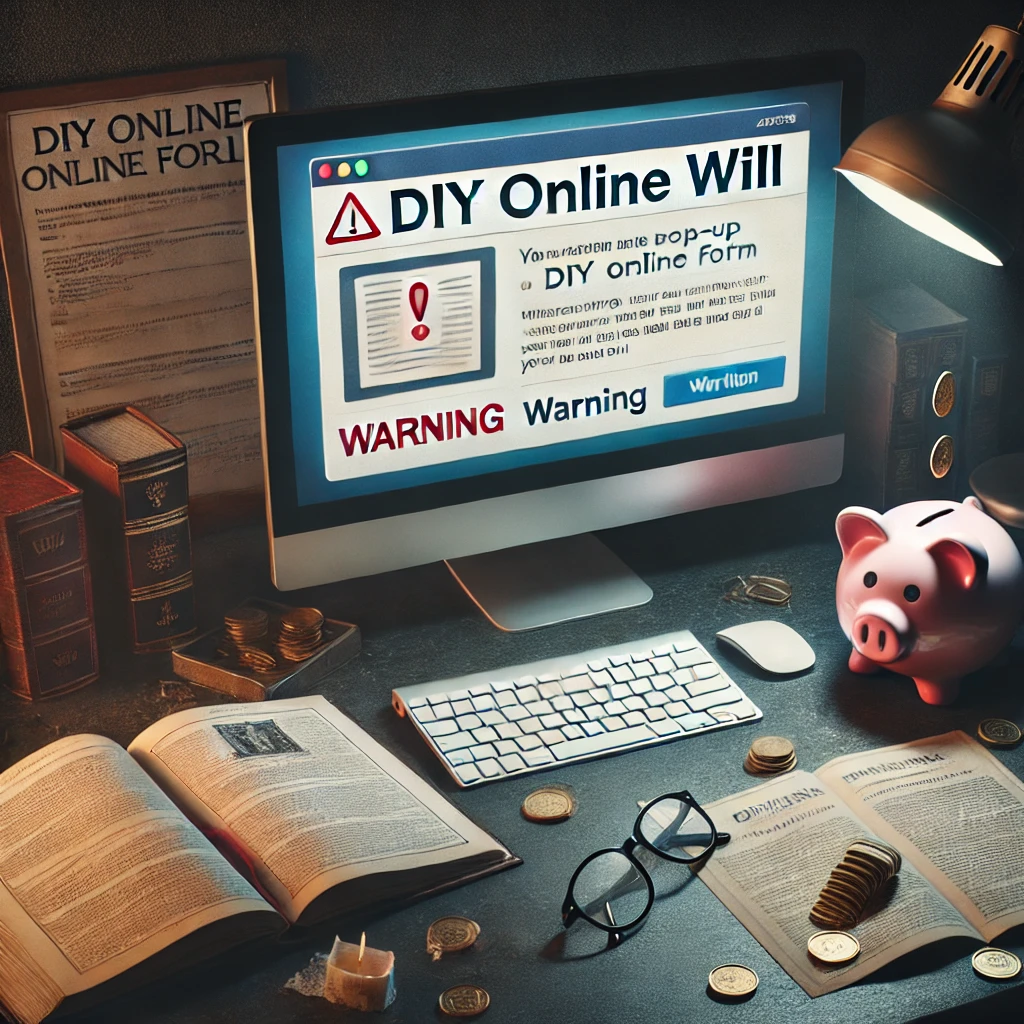
The Pitfalls of Do-It-Yourself Online Wills
As a professional trustee and executor, I’ve encountered countless estate-planning documents, including those created through do-it-yourself (DIY) online services. While these platforms can be cost-effective and convenient, they often come with significant risks that can lead to costly and distressing mistakes in estate planning.
Issues with DIY Online Estate Planning Services
Recently, I reviewed a DIY estate-planning service that had noticeable errors on its website, including typos and mislabeled documents. Even more concerning was the absence of a critical estate planning document that most users wouldn’t even know to look for. This oversight could lead to significant complications down the line.
Although many DIY estate-planning sites have attorneys on staff, the availability of personalized legal advice is often limited. If you do opt for professional guidance, it usually comes with a hefty additional fee.
The Importance of Professional Guidance
For individuals with complex personal or financial situations, DIY services may not adequately address their needs. While it might be tempting to avoid discussing sensitive issues with a professional, doing so can make a world of difference in the effectiveness of your estate plan.
Unlike filing your taxes, where errors can often be resolved with the IRS, mistakes in estate planning might never be known to you but can leave your loved ones dealing with the consequences.
DIY estate planning options have been around for as long as the internet, and even earlier if you consider the software packages once sold in stores. With their affordability and ease of use, one might assume that more people would have up-to-date estate plans. However, a startling statistic from AARP reveals that only 4 in 10 American adults have a will or living trust.
The Essence of Good Estate Planning
Effective estate planning is all about clearly expressing your preferences. In my experience, well-crafted documents that provide detailed instructions are crucial for avoiding court involvement, reducing administrative confusion, and ensuring that the executor knows when their job is done.
There are four fundamental estate planning documents: a will, a trust, a power of attorney for financial matters, and an advance health care directive. When using a DIY service, you’ll likely encounter a fill-in-the-blank approach. However, it’s important to note that each state has its own probate code, and the terminology used by these services may vary.
Some DIY sites offer all the necessary documents, but often only if you purchase a more expensive package. Attorney consultation is usually limited; on one site, the so-called consultation was merely a drop-down menu of questions with pre-written responses, rather than a real conversation with a legal expert.
Weighing the Pros and Cons
The primary benefit of using a DIY service is that it allows you to quickly and inexpensively create an estate plan, which is better than having none at all. This can be especially useful for those who don’t own real estate or have complex assets, as basic documents like a will, power of attorney, and advance health care directive can handle most emergencies.
The cost of DIY services varies, ranging from as little as $69 for a simple will to several hundred dollars for a comprehensive plan. However, these services generally assume that you know exactly what you need. The reality, though, is that many people are uncertain about what they require. When you factor in the complexities of family dynamics and state-specific trust laws, DIY estate planning can create more problems than it solves.
A Word of Caution
My experience has taught me a crucial lesson: You don’t know what you don’t know. While you might have a general idea of how you want to distribute your assets, you might not be aware of the intricate case law and legislation that form your state’s probate code. Life is unpredictable, and having a solid plan in place is essential for ensuring your wishes are honored.
